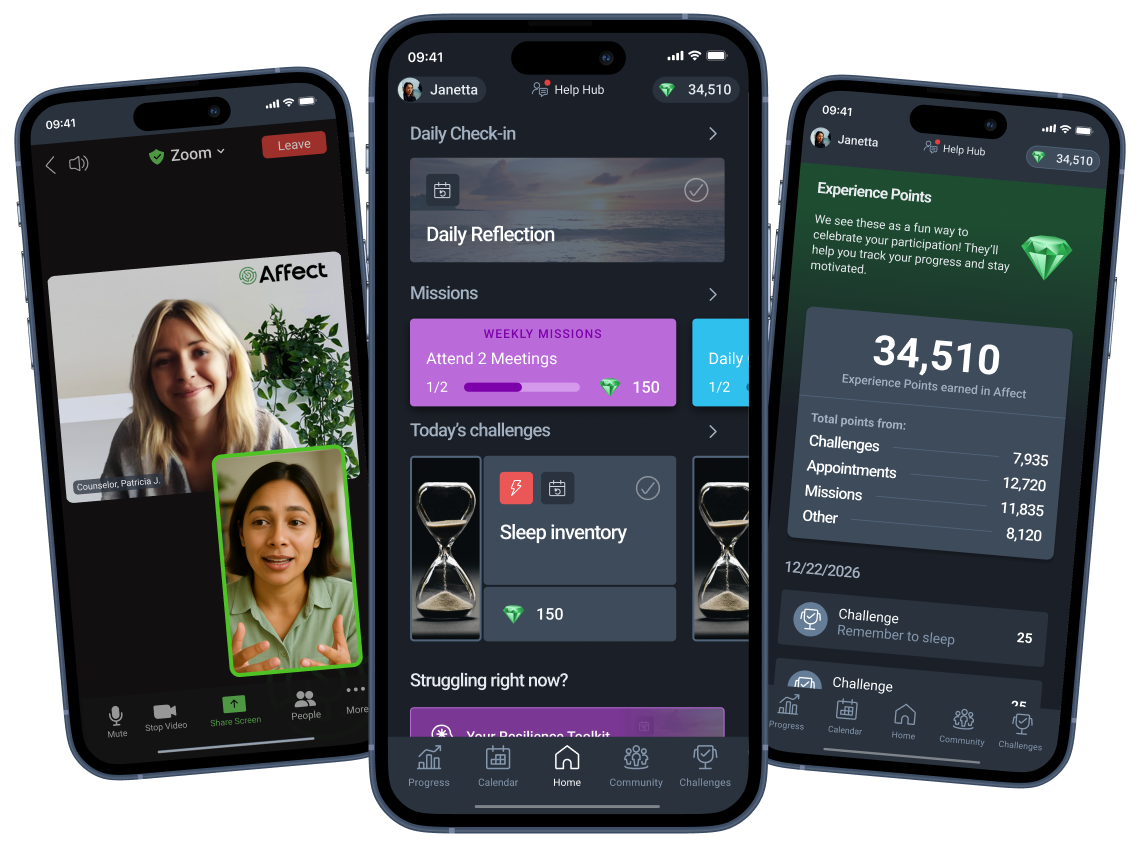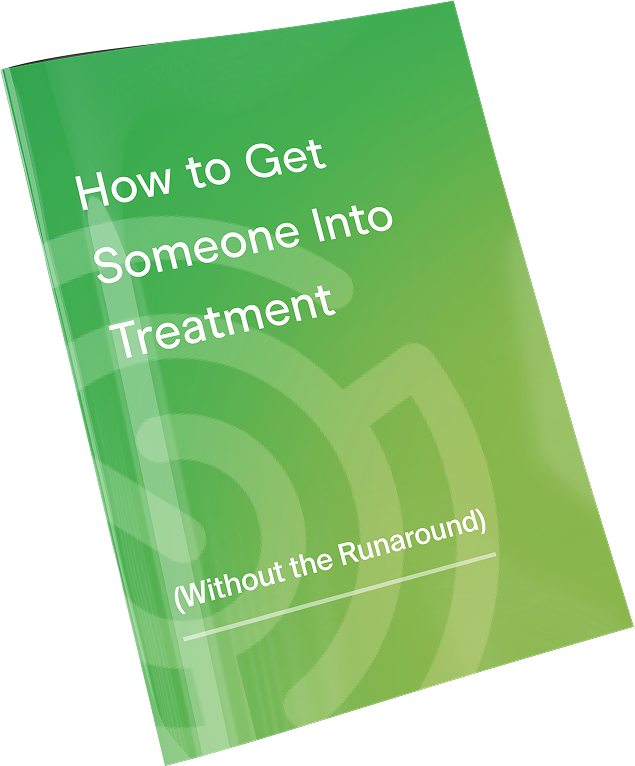Help Someone Get the Support They Deserve
Whether it’s a patient, client, friend, or family member—we make it easy to connect people with treatment that actually works.

People start faster, stick with it longer, and get better outcomes
Affect provides telehealth treatment for mental health and substance use disorders, including alcohol, cannabis, stimulants, and opioids.
Affect’s program is accessible entirely through a smart phone app that makes it easy for members to meet with their counselors and medical providers. Our digital platform lowers barriers to access, meeting members wherever they are, whenever they need us.

Coordinate Care Today
Our team is eager to partner with you to ensure successful treatment outcomes. Send us an email to discuss a current patient’s progress in treatment (subject to their consent). Members can quickly and easily request a Release of Information (ROI) through the Help Hub in the Affect app to facilitate care coordination.
Our care team assists members in finding healthcare, employment opportunities, housing, and more so they can focus on their recovery. We coordinate care to ease case management burdens and keep providers informed so we can work together to save and improve lives. Send us an email to coordinate care for a member of our program.
We Do Things Differently, and it Shows
Affect’s outcomes are 2-3x better than traditional treatment programs
Retention rate after 30 days
Hours average from referral to first session
Less likely to end up in the ER or inpatient care

Insurance Accepted
Thousands have used Affect to change their relationship with drugs or alcohol—and most paid little to nothing out of pocket.
We accept Medicaid, Medicare Advantage, and many commercial insurance plans. Not sure if you’re covered? Just download the app and we’ll check for you in minutes.
Want to see where we operate and which plans we take?
Download Our Referral Toolkit
Want a quick reference on how to send someone our way?
Grab our one-page referral guide—print it, post it, share it. It walks you through exactly how to refer someone to Affect in under two minutes.



